#FunWithLanguages
Explore tagged Tumblr posts
Text
🌐✨ Why Choose Lingualeo for Language Learning? Let's Dive In! 🚀📚
Unleash Your Language Potential with Lingualeo! 🌟
Are you on the hunt for a language learning platform that goes beyond the basics? Look no further! Here's why Lingualeo stands out in the language learning galaxy:
🎓 Adaptive Learning Magic: No one-size-fits-all here! Lingualeo adapts to your unique learning pace, ensuring lessons are challenging enough to stimulate growth yet tailored to keep you engaged.
🕹️ Game On, Fluency On: Turn learning into a game with Lingualeo's gamified experience. Earn points, set new records, and watch your language skills skyrocket in a fun and interactive way.
🤖 Smart Feedback at Your Fingertips: Receive instant feedback on your exercises, guiding you through the learning process with personalized insights. It's like having a language coach right in your pocket!
🗣️ Real Conversations, Real Confidence: Dive into real-life scenarios with conversational lessons that empower you to navigate everyday situations with ease. From ordering your favorite dish to making new friends, Lingualeo prepares you for it all.
🌍 Connect Globally, Learn Locally: Join a vibrant global community of language enthusiasts. Connect with learners worldwide, exchange cultural insights, and embark on a shared journey towards language mastery.
📱 Learn Anytime, Anywhere: Your language classroom is wherever you are! Lingualeo's mobile learning experience lets you take your lessons on the go. Commute, waiting in line, or cozy at home — your language journey fits into your lifestyle.
Ready to Elevate Your Language Game? 🚀🗺️
Whether you're starting from scratch or polishing your language prowess, Lingualeo is your launchpad to linguistic excellence. 🚀✨
Ready to embark on a language adventure like never before? Sign up now and let the linguistic magic begin! 🌐🔗 [Sign Up Today]
#Lingualeo#LanguageLearning#LearnWithLingualeo#LanguageJourney#SpeakFluently#LanguageAdventure#GameOnLanguage#GlobalLinguists#AdaptiveLearning#InteractiveLanguage#LanguageCommunity#LearnAnywhere#FluencyGoals#LingualeoMagic#RealConversations#LanguageMastery#MobileLearning#FunWithLanguages#LingualeoExperience#LanguageSuccess
0 notes
Text
I love you for this lovely write up! Well said and hilarious.
Also in the German version of the book and the show, Jaskier is equally needlessly renamed as "Rittersporn". While the rittersporn plant has a nice blueish color which corresponds well with Joey Batey´s gorgeous eyecolor, I always stumble upon it while reeding. His name is Jaskier goddamit!
Rittersporns direct translation in English would be something like knight´s pike so maybe they were going for sexual innuendo?
Anyways it´s maybe a tad better than Peeing-in-bed.
English Translators: "Jaskier" translates as "Buttercup", but we can't just let a manly man use "Buttercup" as his nickname! That's way too feminine, and our readers would be horrified! Let's call him "Dandelion" instead. Yes, much better... Mucho macho...
Netflix & Joey Batey: Yeah, no. We'll just call him Buttercup by keeping the original Polish name, i.e. Jaskier.
So, this is our very own Prince Buttercup. He's a damoiseau in distress that's regularly in need of being rescued, enjoys chatting with animals, and might randomly break into song.

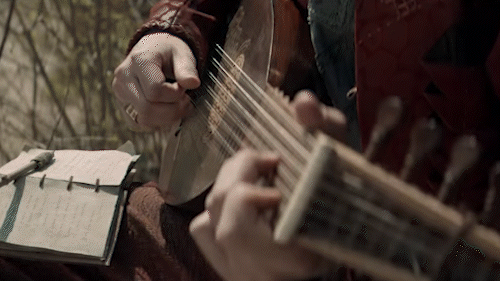
He feels very comfortable asking a strong, stoic, muscular man to accompany him to the Royal Ball for protection, and will attempt to convince him by rubbing chamomile onto his lovely bottom, giving him a bath, washing his stupid hair, and dressing him up in stylish, fine clothing.


He tends to see the good in everyone, and will spontaneously attempt to become friends with things that want to eat him (both figuratively and literally).

However he can occasionally become pretty condescending with commoners, and treat those that fail to appreciate his talent as beneath him; often with a complete disregard for his personal safety, as if it doesn't seem to occur to him right away that they'd actually dare lay their filthy hands on him.

He cries very pretty (so pretty), and will look at you with gorgeous doe eyes when he feels sad, hurt, scared, or needs a favor.


He's very distrustful and afraid of power-hungry sexy witches coming at him from many different angles, until they stop being all predatory and menacing, and begin rescuing and protecting him instead.


He gets along very well with other princes/princesses, and will resent not being invited to one of the most important social events of the Continent, but not getting to spend more time with them.

And he never experienced what romantic love truly was until he finally got to meet his very own Prince.


Obviously, Prince Radovid fell in love with our Buttercup at first sight, and was willing to give up his Kingdom for a chance to be by his side.

And as far as Prince Buttercup is concerned, he sees himself as a

because that's simply who he is, and that's also what masculinity looks like.
So, unless Jaskier, in the books, is a very insecure man that constantly worries about being mistaken for a woman, I can't help but find it hilarious that the translators of the books, in English, got so worried over "Buttercup" sounding feminine...
...when the character himself likely wouldn't have been bothered by the way it sounds in the least, and would totally have rocked that nickname while making it work perfectly for a guy!
Hell! As a non-native English speaker, other than the fact that I've seen the movie "The Princess Bride", and the princess in it was named "Buttercup", my brain does not at all perceive "Buttercup" as inherently feminine, nor "Dandelion" as inherently masculine.
Perhaps because, in French, each word has its own gender, and "bouton d'or" (i.e. "buttercup", but the literal translation would be "button made of gold") is masculine.
Un bouton d'or (a buttercup) is masculine.
Un pissenlit (a dandelion) is masculine.
Une rose (a rose) is feminine.
Une tulippe (a tulip) is feminine.
Etc.
"Princess Buttercup" is thus named "Princesse Bouton d'or" (it's actually the title of the movie) in French.
But "Bouton d'or" (Buttercup) is, by itself, a masculine word.
The funny thing is that, where I'm from, I think the dandelion is literally the single most hated flower I can think of.
When I was a kid, my parents - and pretty much all our neighbors - spent countless hours trying to remove every single dandelion they could find on their lawn and in their garden while making sure to fully eliminate the whole root, because they tended to replace all the grass, and some of the other flowers and plants from their garden.
Some of our neighbors had their lawns treated with very harsh chemicals (many of which are thankfully illegal today) in a desperate effort to get rid of them.
Dandelion always makes allergy season a complete and utter nightmare, makes it harder to breathe outside (those floating bits clouding the air always get stuck in your nose, throat or even eyes), it also clogs the air filter of your car...
And, when you cut them at the stem, your hands wind up all sticky and smelling awful.
Unless they want to make a point that they'll be extremely annoying, unwanted, sticky, smelly, trying to get into every single exposed orifice of your body as soon as you're exposed to them, and hard to get rid of, why would anyone ever wish to nickname themselves "dandelion"?
I mean, "pissenlit", the French name for "dandelion", comes from "pisse-en-lit" and literally means "peeing-in-bed".
Because if you eat dandelion leaves, they will make you pee and wet your bed (they have a strong diuretic effect).
Yes, we hate the dandelion so much, that we've decided to name that freaking flower "peeing-in-bed".
So, if you go from the original Polish name to the English translation of the name, and then translate the English name back to French...
You've essentially replaced:
Jaskier - > Buttercup - > Button made of gold (Bouton d'or).
By
Jaskier - > Dandelion - > Peeing-in-bed (Pissenlit).
It's hilarious!
All because some English translator got scared "Buttercup" would sound "too feminine".
The good news is that we kept Jaskier's name as "Jaskier" in the French translation of the books and the games. Although Bouton d'or would have worked just fine.
But yeah, come on! Jaskier would have made a beautiful Buttercup!
#the art of creating some gender issue where there's none.
When in doubt, just ask the character...
Would Jaskier have had what it took to call himself a "Buttercup"?
You bet your lovely bottom and bloated biceps he would have!
Still can't wrap my mind around him being a peeing-in-bed flower in English... Just... Nope! Does not compute.
198 notes
·
View notes
Text
Dive into the sound of 'Ka' from the Hindi Alphabet with Kutuki!
youtube
🎵 Unveil the magic of 'Ka' with Kutuki! 🌈 Immerse yourself in the melodic journey of the Hindi alphabet as we explore the enchanting sound of 'Ka.' 🎶 Join us in this musical adventure filled with fun and learning, brought to you by Kutuki's vibrant and engaging content. 📚✨ Let the rhythm of 'Ka' captivate your senses and make learning Hindi a joyous experience for your little ones. 🤩 Don't miss out on the excitement – hit play now and let the musical exploration begin!
#Kutuki#HindiAlphabet#LearnWithMusic#KaSound#EducationalFun#KidsLearning#LanguageAdventure#PreschoolEducation#InteractiveLearning#ExploreWithKutuki#FunWithLanguage#Youtube
0 notes
Text
🌍🎉 Make Language Learning FUN & Engaging! 🎉🌍
Looking for creative ways to teach Spanish (or any world language) to kids? 🎨🎭🎶 Our teaching materials are packed with interactive games and hands-on activities that make learning exciting and effective!
✨ What’s Inside?
✅ Fun vocabulary games 🃏
✅ Printable bingo games ✏️
✅ Speaking activities 🗣️
✅ Interactive fun 🎭
🚀 Perfect for teachers & homeschoolers! Give your students a head start in language learning with ready-to-use resources that spark curiosity and joy!
Check out our TPT Store @WolfSong Designs
📩 DM us for details or grab your FREE sample today! 🎁
#WorldLanguageTeaching #FunWithLanguages #SpanishForKids #EngagingLessons #LanguageLearning #TeacherLife

0 notes
Text
INTERESTING IDIOMS IN ENGLISH.
Hi Everyone, Welcome to my website and have fun. ❤❤❤😊😊😊
Hi Friends, Today I would like to share some interesting idioms in. English with their meanings. Hope you like them. ( Pinterest Images) Thank you so much for taking your precious to visit my website. Hope you enjoyed reading my blogs. 😊😊 #English #Idiomsandtheirmeanings#funwithlanguage#Pinterest.
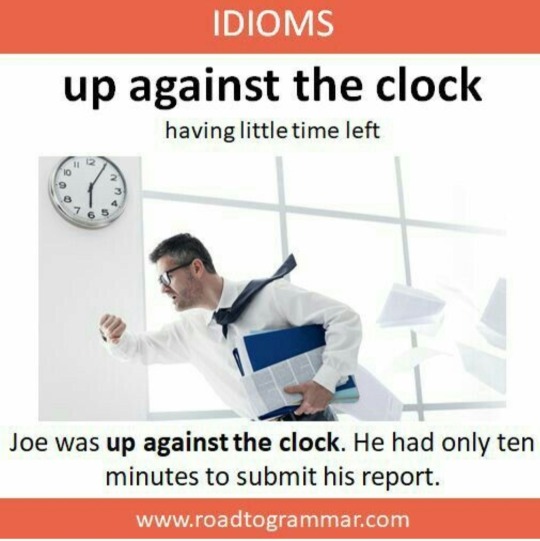
View On WordPress
0 notes
Text
Can You Say Hi Song for Kids Toddler Learning Video. Babys First Words
We’re back with a new singing video. “Can You Say Hi” with Ms. Mookie – Baby & Toddler Learning & Development. We hope you will enjoy the video. Welcome to Ms. Mookie’s, where we believe that the journey of learning begins with a warm “Hello”! In this delightful video, we’re embarking on a charming adventure designed to help your toddlers learn to say “Hi” and so much more. So, parents and caregivers, let’s make learning fun and engaging for your little ones! What Your Toddler Will Discover Today: Saying “Hello” with a Smile Learning Greetings for new friends Engaging Activities to Practice such as “I love you.” Our educational videos are tailored to nurture early language development, social skills, and curiosity in your toddler. We understand the importance of these early interactions, and we’re here to make them enjoyable. Join us for: Fun Songs for Greetings Creative Ways to Say “Hi” At Ms. Mookie’s, we believe in the power of early education through play and interaction. Subscribe to our channel to embark on a learning journey with your child, and together, we’ll explore the wonderful world of language and social connections. Don’t forget to give us a thumbs up, share this video with fellow parents, and hit the notification bell to stay updated with our latest educational adventures. Thank you for choosing [Channel Name] as your partner in your toddler’s learning journey! #ToddlerEducation #EarlyLanguageSkills #SocialDevelopment #EducationalVideos #SayingHello #GreetingsAroundTheWorld #LearningThroughPlay #FunWithLanguage #ParentingTips #KidsActivities #InteractiveLearning #EarlyChildhoodEducation #GrowingUpSmart #HelloWorld #ChildhoodDiscovery Can You Say Hi Song for Kids – Toddler Learning Video. Baby’s First Words published first on https://www.youtube.com/@ms.mookie/ Can You Say Hi Song for Kids – Toddler Learning Video. Baby’s First Words published first on https://msmookiefortoddlers.wordpress.com/
0 notes
Text
Can You Say Hi Song for Kids - Toddler Learning Video. Baby's First Words
We're back with a new singing video. "Can You Say Hi" with Ms. Mookie - Baby & Toddler Learning & Development. We hope you will enjoy the video. 👋📚 Welcome to Ms. Mookie's, where we believe that the journey of learning begins with a warm "Hello"! In this delightful video, we're embarking on a charming adventure designed to help your toddlers learn to say "Hi" and so much more. So, parents and caregivers, let's make learning fun and engaging for your little ones! 🔤 What Your Toddler Will Discover Today: 👋 Saying "Hello" with a Smile 🌈 Learning Greetings for new friends 📢 Engaging Activities to Practice such as "I love you." Our educational videos are tailored to nurture early language development, social skills, and curiosity in your toddler. We understand the importance of these early interactions, and we're here to make them enjoyable. 🌟 Join us for: 🎵 Fun Songs for Greetings 🎨 Creative Ways to Say "Hi" At Ms. Mookie's, we believe in the power of early education through play and interaction. Subscribe to our channel to embark on a learning journey with your child, and together, we'll explore the wonderful world of language and social connections. Don't forget to give us a thumbs up, share this video with fellow parents, and hit the notification bell to stay updated with our latest educational adventures. Thank you for choosing [Channel Name] as your partner in your toddler's learning journey! #ToddlerEducation #EarlyLanguageSkills #SocialDevelopment #EducationalVideos #SayingHello #GreetingsAroundTheWorld #LearningThroughPlay #FunWithLanguage #ParentingTips #KidsActivities #InteractiveLearning #EarlyChildhoodEducation #GrowingUpSmart #HelloWorld #ChildhoodDiscovery Can You Say Hi Song for Kids - Toddler Learning Video. Baby's First Words published first on https://www.youtube.com/@ms.mookie/ Can You Say Hi Song for Kids - Toddler Learning Video. Baby's First Words published first on https://msmookiefortoddlers.blogspot.com/
0 notes
Text
Can You Say Hi Song for Kids - Toddler Learning Video. Baby's First Words
We're back with a new singing video. "Can You Say Hi" with Ms. Mookie - Baby & Toddler Learning & Development. We hope you will enjoy the video. 👋📚 Welcome to Ms. Mookie's, where we believe that the journey of learning begins with a warm "Hello"! In this delightful video, we're embarking on a charming adventure designed to help your toddlers learn to say "Hi" and so much more. So, parents and caregivers, let's make learning fun and engaging for your little ones! 🔤 What Your Toddler Will Discover Today: 👋 Saying "Hello" with a Smile 🌈 Learning Greetings for new friends 📢 Engaging Activities to Practice such as "I love you." Our educational videos are tailored to nurture early language development, social skills, and curiosity in your toddler. We understand the importance of these early interactions, and we're here to make them enjoyable. 🌟 Join us for: 🎵 Fun Songs for Greetings 🎨 Creative Ways to Say "Hi" At Ms. Mookie's, we believe in the power of early education through play and interaction. Subscribe to our channel to embark on a learning journey with your child, and together, we'll explore the wonderful world of language and social connections. Don't forget to give us a thumbs up, share this video with fellow parents, and hit the notification bell to stay updated with our latest educational adventures. Thank you for choosing [Channel Name] as your partner in your toddler's learning journey! #ToddlerEducation #EarlyLanguageSkills #SocialDevelopment #EducationalVideos #SayingHello #GreetingsAroundTheWorld #LearningThroughPlay #FunWithLanguage #ParentingTips #KidsActivities #InteractiveLearning #EarlyChildhoodEducation #GrowingUpSmart #HelloWorld #ChildhoodDiscovery Can You Say Hi Song for Kids - Toddler Learning Video. Baby's First Words published first on https://www.youtube.com/@ms.mookie/ Can You Say Hi Song for Kids - Toddler Learning Video. Baby's First Words published first on https://msmookiefortoddlers.blogspot.com/
0 notes
Text
youtube
We're back with a new singing video. "Can You Say Hi" with Ms. Mookie - Baby & Toddler Learning & Development. We hope you will enjoy the video. 👋📚 Welcome to Ms. Mookie's, where we believe that the journey of learning begins with a warm "Hello"! In this delightful video, we're embarking on a charming adventure designed to help your toddlers learn to say "Hi" and so much more. So, parents and caregivers, let's make learning fun and engaging for your little ones! 🔤 What Your Toddler Will Discover Today: 👋 Saying "Hello" with a Smile 🌈 Learning Greetings for new friends 📢 Engaging Activities to Practice such as "I love you." Our educational videos are tailored to nurture early language development, social skills, and curiosity in your toddler. We understand the importance of these early interactions, and we're here to make them enjoyable. 🌟 Join us for: 🎵 Fun Songs for Greetings 🎨 Creative Ways to Say "Hi" At Ms. Mookie's, we believe in the power of early education through play and interaction. Subscribe to our channel to embark on a learning journey with your child, and together, we'll explore the wonderful world of language and social connections. Don't forget to give us a thumbs up, share this video with fellow parents, and hit the notification bell to stay updated with our latest educational adventures. Thank you for choosing [Channel Name] as your partner in your toddler's learning journey! #ToddlerEducation #EarlyLanguageSkills #SocialDevelopment #EducationalVideos #SayingHello #GreetingsAroundTheWorld #LearningThroughPlay #FunWithLanguage #ParentingTips #KidsActivities #InteractiveLearning #EarlyChildhoodEducation #GrowingUpSmart #HelloWorld #ChildhoodDiscovery Can You Say Hi Song for Kids - Toddler Learning Video. Baby's First Words published first on https://www.youtube.com/@ms.mookie/
0 notes
Photo

Culpable - Guilty as charged 😃 (In case you are wondering... you could say “mamá osa”) Hasta pronto Debbie #spanishtidbits #speakspanish #learnspanish #funwithspanish #funwithlanguages #lovelanguage #learn #mamabear https://www.instagram.com/p/BssbkFAjH4n/?utm_source=ig_tumblr_share&igshid=txi1yph549r6
#spanishtidbits#speakspanish#learnspanish#funwithspanish#funwithlanguages#lovelanguage#learn#mamabear
1 note
·
View note
Text
Hello. According to @funwithlanguages post you can understand a lot of a language by learning the ~300 most common words. I decided to translate the list into my native language, Danish. If anyone finds any mistakes, please let me know.
If you want someone to look over your Danish, feel free to message me also, if I have the time I’ll gladly help (I’m currently helping several people I know in real life learning danish also)
First Verbs
To be · At være
there is · Der er
Have · (At) have
Do · (At) gøre
Go · Gå
Want · Vil have
Can · Kan
Need · (At have) brug for
Think · Tænke
Know · Vide
Say · Sige
Like · (At) synes godt om
Speak · Tale
Learn · (At) lære
Understand · (At) forstå
Conjunctions
that (as in “the woman that…”) · der / som (Not applicable for “I think that…”)
And · Og
Or · Eller
But · Men
Because · Fordi
Though · Selvom / Dog (It depends on the context)
so (meaning “therefore”; e.g. “I wanted it, so I bought it”) · Derfor
If · Hvis
Prepositions
Of · Af
To · Til
From · Fra
In · I
at (a place) · Ved
at (a time) · Ved
This is very unusual in the danish language. “meet me at 10” would be “mød mig klokken 10” klokken meaning time in this case.
With · Med
About · Om
like (meaning “similar to”) · Som (similar to would be: svarende til)
for (warning, this one has several meanings that you need to take care of) · For
before (also as a conjunction) · Før
after (also as a conjunction) · Efter
During · Imens / Mens
Question Words
Extra comma rule! Whenever there’s a question word that starts with Hv there’s a comma before. Example: Ved du, hvem der gjorde det? Nej, men jeg ved, hvad der er sket.
Who · Hvem
What · Hvad
Where · Hvor
When · Hvornår
Why · Hvorfor
How · Hvordan
How much · Hvor meget
Which · Hvilken
Adverbs
a lot · Meget
a little · Lidt
Well · Godt
Badly · Dårligt
Only · Kun
Also · Også
Very · Meget
too (as in “too tall”) · For
too much · For meget
so (as in “so tall”) · Så
so much · Så meget
more (know how to say “more … than …”) · Mere
less (know how to say “less … than …”) · Mindre
as … as … (e.g. “as tall as”) · Så… som… (så høj som..)
Most · Mest
Least · Mindst
Better · Bedre
Best · Bedst
Worse · Værre
Worst · Værst
Now · Nu
Then · Dengang (meaning back then) / derefter (as in first this, then this.)
Here · Her
There · Der
Maybe · Måske
Always �� Altid
Usually · Som regel / for det meste
Often · Ofte / tit
Sometimes · Sommetider / Nogle gange
Never · Aldrig
Today · I dag
Yesterday · I går
Tomorrow · I morgen
Soon · Snart
Almost · Næsten
Already · Allerede
Still · Stadig
Even · Selvom
Enough · Nok
Adjectives
the, a (technically articles) · We don’t have “the” in danish. “A” is either en or et depending on the noun. Instead of the, we end the word in either -en or -et again depending on the noun. (The dog = Hunden. A dog = En hund.)
This · Dette / Det her / Denne / Den her (again depending on the noun)
That · Det der / Den der
Good · God / godt (dependant on the noun?)
Bad · Dårlig / dårligt (dependant on the noun?)
All · Alle
Some · Nogle
No · ingen
Any · Nogen
Many · Mange
Few · Få
Most · Flest / Mest
Other · Anden / Andet (denpendant on the noun)
Same · Samme
Different · Forskellig
Enough · Nok (there is enough = der er nok)
One · En
Two · To
a few · Nogle få
First · Først / Første
Next · Næste
last (meaning “past”, e.g. “last Friday”) · Sidste
last (meaning “final”) · Sidste / Endelige
Easy · Nem
Hard · Svær
Early · Tidlig
Late · Sen
Important · Vigtig
Interesting · Interessant
Fun · Sjov
Boring · Kedelig
Beautiful · Smuk
Big · Stor
Small · Lille
Happy · Glad
Sad · Trist / Ked af det
Busy · Travl
Excited · Spændt
Tired · Træt
Ready · Klar
Favorite · Yndlings
New · Ny
right (meaning “correct”) · Rigtig
Wrong · Forkert
True · Sand / Sandt
Pronouns
Know them in the subject (“I”), direct object (“me”), indirect object (“to me”), and possessive (“my”) forms.
I · Jeg
You · Du
She · Hun
He · Han
It · Den / Det
We · Vi
you (plural) · I (Written in uppercase)
They · De
Nouns
Everything · Alt
Something · Noget
Nothing · Ingenting
Everyone · Alle / Alle sammen
Someone · Nogen
no one · Ingen
(name of the language you’re studying) · Dansk
English · Engelsk
Thing · Ting
Person · Person
Place · Sted
time (as in “a long time”) · Tid
time (as in “I did it 3 times”) · Gang(e) (Jeg gjorde det 3 gange)
Friend · Ven (male and female, used most often) / Veninde (female)
Woman · Kvinde
Man · Mand
Money · Penge
Country · Land
(name of your home country) · Danmark
City · By
Language · Sprog
Word · Ord
Food · Mad
House · Hus
Store · Butik / Forretning
Office · Kontor
Company · Firma
Manager · Manager
Coworker · Kollega
Job · Arbejde / Job
work (as in “I have a lot of work to do”) · Arbejde
Problem · Problem
Question · Spørgsmål
Idea · Idé
Life · Liv
World · Verden
Day · Dag
Year · År
Week · Uge
Month · Måned
Hour · Time
mother, father, parent · Mor, far, forælder (forældre in plural)
daughter, son, child · Datte, søn, barn
wife, husband · Kone, Mand
girlfriend, boyfriend · Kæreste (gender neutral)
More Verbs
work (as in a person working) · Arbejde
work (meaning “to function”, e.g. “the TV works”) · Virke
See · Se
Use · Bruge
Should · Burde
Believe · Tro
Practice · Øve sig
Seem · Synes (Context dependant)
Come · Komme
Leave · Gå / Forlade
Return · Vende tilbage / Tilbagevende
Give · Give
Take · Tage
Bring · Bringe
look for · Lede efter
Find · Finde
get (meaning “obtain”) · Få
Receive · Få
Buy · Købe
Try · Prøve
Start · Starte
stop (doing something) · (At) Stoppe / (Jeg) stopper
Finish · Færdiggøre
Continue · Forstætte
wake up · Vågne
get up · Stå op (get out of bed)
Eat · Spise
eat breakfast · Spise morgenmad (verb + noun)
eat lunch · Spise frokost (verb + noun)
eat dinner · Spise aftensmad (verb + noun)
Happen · Ske
Feel · Føle
create (aka “make”) · Lave
cause (aka “make”) · Forårsage / at være årsag til
meet (meeting someone for the first time) · Møde
meet (meaning “to bump into”) · Støde ind i / Møde
meet (an arranged meeting) · Møde
ask (a question) · Spørge
ask for (aka “request”) · Bede om
Wonder · Undre (sig)
Reply · Svare
Mean · Mene
Read · Læse
Write · Skrive
Listen · Lytte
Hear · Høre
Remember · Huske
Forget · Glemme
Choose · Vælge
Decide · Beslutte (sig)
be born · (Blive) Født
Die · Dø
Kill · Dræbe
Live · Leve
Stay · Blive
Change · Ændre
Help · Hjælpe
Send · Sende
Study · Studere
Improve · Forbedre
Hope · Håbe
Care · (At) Bekymre (sig om)
Phrases
Hello · Hej
Goodbye · Farvel
thank you · Tak
you’re welcome · Det var så lidt / Selv tak
excuse me (to get someone’s attention) · Undskyld mig
Sorry · Undskyld
it’s fine (response to an apology) · Det er okay
Please · We don’t have this. We would say “Vil du være sød at…” (Would you be so kind as to…) ending the sentence in “..., tak”
Yes · Ja
No · Nej
Okay · Okay
My name is · Mit navn er...
What’s your name? · Hvad er dit navn? (uncommon) / Hvad hedder du? (common)
Nice to meet you. · Godt at møde dig / Rart at møde dig
How are you? · Hvordan har du det?
I’m doing well, how about you? · Jeg har det godt, hvad med dig?
Sorry? / What? (if you didn’t hear something) · Undskyld? / Hvad?
How do you say ______? · Hvordan siger man ____?
What does ______ mean? · Hvad betyder ____?
I don’t understand. · Jeg forstår ikke (helt) / Det forstår jeg ikke (common) / Jeg forstår det ikke
Could you repeat that? · Kan du gentage det?
Could you speak more slowly, please? · Kan du snakke lidt langsomere?
Well (as in “well, I think…”) · Altså
Really? · Virkelig?
I guess that · Jeg tror at...
It’s hot. (talking about the weather) · Her er varmt / Det er varmt
It’s cold. (talking about the weather) · Her er koldt / Det er koldt
38 notes
·
View notes
Photo
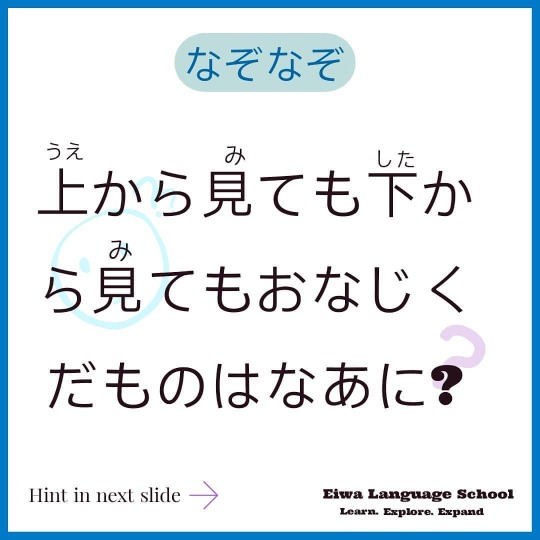
#なぞなぞ #ナゾナゾ #nazonazo #riddles #japaneseriddle #謎謎 #puzzle #nihongo #日本語 #くだもの #japaneselanguagelearning #japaneselanguage #funwithlanguages #japanese #japanesevocabs #learnjapaneselanguage #eiwalanguageschool #永和言語学校 https://www.instagram.com/p/B-hLfS7nxmw/?igshid=agbp8c7yjyyv
#なぞなぞ#ナゾナゾ#nazonazo#riddles#japaneseriddle#謎謎#puzzle#nihongo#日本語#くだもの#japaneselanguagelearning#japaneselanguage#funwithlanguages#japanese#japanesevocabs#learnjapaneselanguage#eiwalanguageschool#永和言語学校
0 notes
Text
Dive into the sound of 'Tha' from the Hindi Alphabet with Kutuki!
Dive into the mesmerizing sound of 'Tha' from the Hindi Alphabet with Kutuki! 🌟✨ Discover the beauty of this unique phonetic wonder through engaging visuals and playful learning.
Unleash the magic of language with us!
#HindiAlphabet#LanguageLearning#Kutuki#ThaSound#Phonetics#EducationalVideos#LearnHindi#CulturalExploration#InteractiveLearning#ChildrensEducation#FunWithLanguage
0 notes
Text
日本語で3百語の単語…第2部。
read part one of this series. @funwithlanguages’ original post.
conjunctions:
in japanese, conjunctions tend to carry a fair amount of emotional and contextual baggage. they’re seldom as simple as ‘and’ or ‘or’. they’re ‘and finally’ or ‘and this is another reason’ or ‘when this happened, this happened’…
and that’s if they can be isolated at all.
whole expressions/set phrases, particles or the conjunctive/continuative auxiliary verb suffix 〜[て・で] (te/de) — which tacks onto verb stems and connects to other verbs — handle many of the functions of these simple english words. there are dozens of ways to express most of them, and all carry a different emotional charge.
that (as in “I think that…” or “the woman that…”) oh man. this one…doesn’t really exist in japanese. ‘that’ is usually inserted into translations to make them sound natural in english.
the closest equivalent that comes to mind for ‘i think that…’ is 〜と思う (to omou), an expression used for describing one’s own thoughts and feelings. no part of it means ‘that’.
the ‘light nouns’ 事、こと (koto, intangible thing) and 者・物、もの (mono, animate or inanimate object) often appear in phrases that can be translated into english using ‘that’ in this sense. these are actually complete sentences in japanese, not dependent clauses like ‘that’ forms in english.
本当じゃないこと。 hontou ja nai koto. things that are not true.
忘れたい事は忘れられない事。 wasuretai koto wa wasurerarenai koto. the things that i want to forget are things that i can’t forget.
将来を見据えて学問に励む者。 shourai o misuete gakumon ni hagemu mono. people that work hard in their studies, keeping an eye on the future.
and
と (to), probably the most straightforward equivalent for ‘and’. it has a ton of unrelated uses.
し (shi), ‘and’ but also ‘but also’, ‘and this is a reason’ and…
そして (sosh’te), which means ‘and finally’,
及び (oyobi), formal?
and 〜[て・で] …but only sometimes.
or 又は (mata wa), も…も (mo…mo) both can mean ‘or’ or ‘either … or ��’ i am not familiar yet with the nuances around 又は。
but
でも (demo),
けど (kedo), which implies an unspoken conclusion at the end of a sentence;
然し (sh’kashi), semi-formal;
だって (datte), informal and kinda peevish/argumentative/petty/childish. bear with me here. だって is a combined particle with no meaning on its own, but it carries many implications. it refers to something someone said beforehand, but precedes additional, usually negative information related to the previous statement.
because し, から (kara), which actually means ‘from’ in the sense of consequences being derived from a previous action or occurrence. this also fits for ‘so’. だって can be used here as well.
though のに (no ni), usually used to indicate a consequence that is surprising, unfavorable, or both. many of the other words here fill this role too.
so (meaning “therefore”; e.g. “I wanted it, so I bought it”) から, [だ・です]から (da/des’ kara), ので (no de, formal/polite).
if*
と, often indicates an ominous unspoken ‘then’ at the end of a sentence;
なら (nara), connects sentences and means ‘if this, then that will occur’,
〜たら (tara, for verbs)
〜けれ[ば] (-ba for verbs, -kereba for adjectives)…
just as with ‘but’, countless ways to say ‘if’ exist.
* whispers: ‘if’ is an adverb in english, actually…
#300 words#studyblr#japanese langblr#langblr#japanese#日本語#日本語で三百語の単語#language learning#whew#long reads#自分の文書
4 notes
·
View notes
Link
Hey everyone! I took @funwithlanguages list of 300 words and made myself a printable for it, and I thought I would share it will all of you too
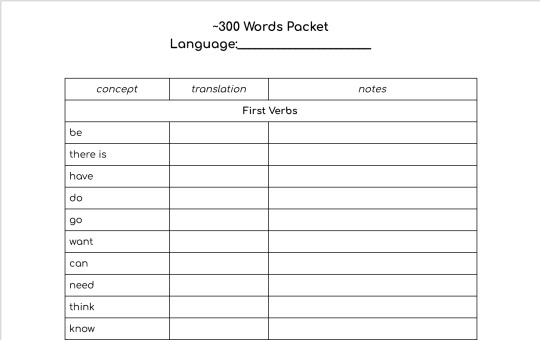
it’s focused on translating concepts rather than just words, and I added a notes section to jot down pronunciation tips or potential caveats for different situations. For example, if there is more than one translation for a concept (ser & estar both translate into “to be”)
There are also pronoun tables for quick reference
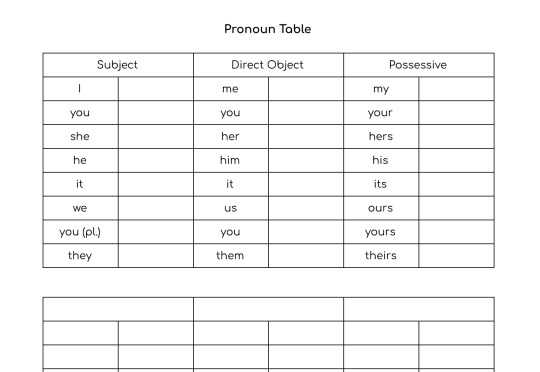
and an optional appendix! of words that are in the swadesh list but not the previous 300 words
you can print it out or just make a copy and fill it out on google drive!
258 notes
·
View notes
Photo

나의 새로운 방과후 수업은 멋지다! 내 학생들을 사랑하고 그들이 얼마나 훌륭한지~ @joyoflanguages #languagediarychallenge #languages #funwithlanguages #languagefun #korean #koreanlanguage #koreanisawesome #studyKorean #한국어 #공부 #연습 #쓰기 (at Wonju) https://www.instagram.com/p/BnbdBZXgtxN/?utm_source=ig_tumblr_share&igshid=13lt7lts53ibn
#languagediarychallenge#languages#funwithlanguages#languagefun#korean#koreanlanguage#koreanisawesome#studykorean#한국어#공부#연습#쓰기
0 notes